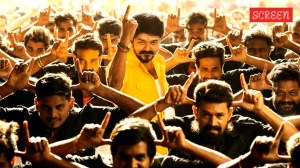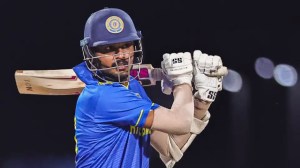He donated daughter8217;s organs, is once again called Papa
When Bal Mukesh Soni8217;s 19-year-old daughter died in a road accident in Ahmedabad...

When Bal Mukesh Soni8217;s 19-year-old daughter died in a road accident in Ahmedabad, he did what very few people have the fortitude to do. He donated her kidneys, eyes, bone marrow and tissues. The kidneys gave a new life to a girl from Lucknow and though Soni lost his daughter, he feels, he now has another. The girl with new, healthy kidneys now lovingly calls him 8216;Papa8217;. The kidney transplant was done by the Ahmedabad-based Institute of Kidney Diseases and Research Centre IKRDC, an autonomous medical centre.
While the Gurgaon kidney racket has shaken the country, an organised cadaver kidney transplant system is in place in Gujarat that ensures organ donation without any coersion, or touts involved. With 45 done last year alone, IKDRC conducts the largest number of cadaver kidney transplants from 8216;brain dead8217; donors. It has conducted more than 2,000 live kidney donor transplants so far.
Though the IKRDC, an autonomous medical centre, was set up in 1977, it started an awareness campaign for cadaver donations in 1995. Founded and headed by Dr H L Trivedi, it prodded the Gujarat Assembly to adopt the Human Organ Transplantation Act in the state in 1997. Dr Trivedi, a kidney specialist realised that there was no institute or hospital to do transplants at that time. 8220;The number of patients in final stage renal failure is high and there was very little to help them,8221; Dr Trivedi says.
According to Dr Trivedi carrying out a large-scale cadaver organ donation programme is the only way of addressing the concerns of nearly a lakh end-stage renal failure cases each year. The donors usually register themselves with the centre in advance to donate organs in case of death. In case of sudden death, and if the person is not a registered donor, a network of hospitals, both government and private, across the state coordinate with the centre. With its hi-tech ambulances, the organs are transported to the centre.
It is also an advanced centre of stem cell research focussing on using stem cells to reduce the use of immuno-suppressant after transplants.
The centre is now working with the Government for a single 24-hour toll-free number for organ donation, using celebrities for awareness drives. Also a heli-ambulance fleet to fly in potential donors like road accident victims will be a part of the programme.
The centre also organises outreach programmes for families of donors to spread awareness about organ donation. The recipients are primarily from Rajasthan, MP, UP besides Gujarat. In 2006, a Kenyan national also received a match and underwent a successful transplantation.
In most cases, the donors want to meet the recipients of the organs and often a bond is formed between the two families. It is this transparency that has helped the IKDRC win the confidence of the people.
8220;I got the strength from God to donate my daughter8217;s organs. It has given life to a girl from Lucknow who was in the waiting list for kidneys at the IKRDC. There is a bond between us now,8221; said Soni.
However, in spite of doing path-breaking work, the centre feels it is too little and too less. H L Trivedi, director of the IKRDC says, 8220;There is something seriously wrong somewhere if only 45 people came up for donating the organs of their deceased relatives. We have a waiting list of more than 300 patients waiting for kidneys and every year only between 40 to 50 organs can be made available.8221;
Problems facing the cadaver organ donation programs is spelt out by Dr Pranjal Modi, head of transplantation surgery department at the IKRDC. He says, 8220;Even among doctors, very few have the knowledge or the training to certify a person as 8216;brain dead8217;, which is essential for the person to be certified as a donor. Even the curriculum at the medical colleges has not covered it adequately.8221;
Seeing its success, the Department for Health and Family Welfare, has ordered the networking of the nephrology and urology departments of all medical colleges in the state with the IKRDC. This will ensure greater interaction between the IKDRC and potential donors.
All these are isolated efforts and Dr Trivedi says, 8220;We need a central authority to monitor the kidney transplantation programmes throughout India. This is also a good time to debate whether the organs of brain dead persons should become the property of the state to be used for transplantation programmes as is done in many Scandinavian Countries.8221;
- 01
- 02
- 03
- 04
- 05































